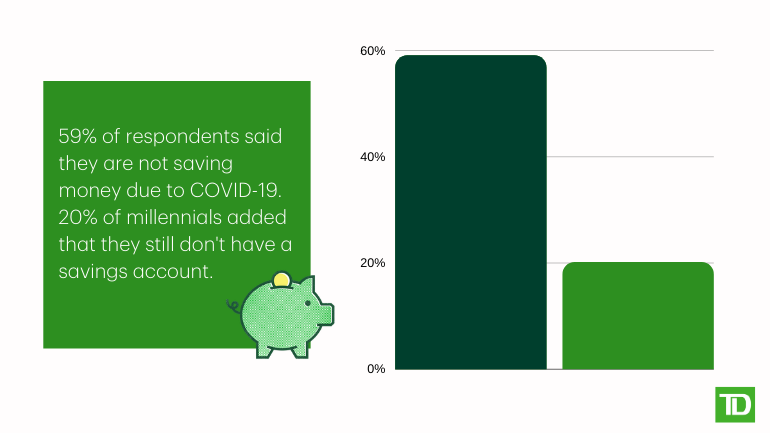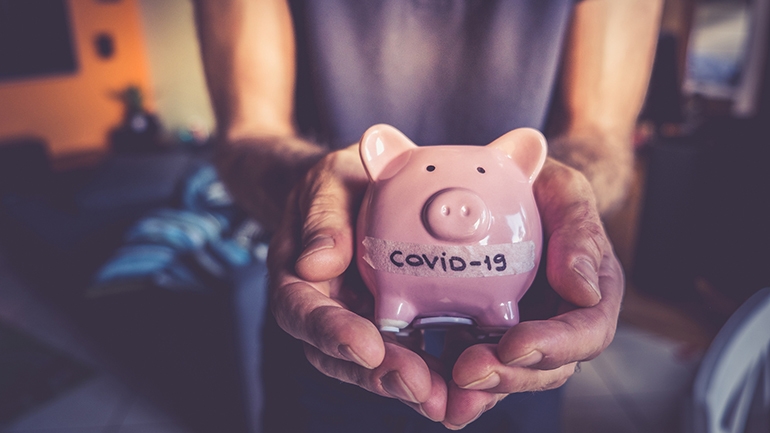Here are some ways to possibly start saving amid the pandemic
While we are beginning to see some local economies slowly reopen amid the COVID-19 pandemic, many are still concerned about an uncertain future.
Social distancing, the wearing of masks and major businesses running at around half capacity is currently and may be the norm for some time, as we try to keep the number of cases from spiking.
A new TD Bank Money Matters survey delved into the habits of various age groups like Gen X and millennials and found some important revelations as it pertains to budgeting and saving.
With unemployment numbers still at historic highs, conserving and planning for the future is more important than ever if you have the ability to do so.
The new survey found that 52% people respondents said they keep a budget and the positive news was that the majority of those who monitor their spending rarely deter from their budget.

What was not surprising was that 59% of respondents said they are not saving money due to COVID-19. 20% of millennials added that they still don't have a savings account.
If you're currently without work and lack an income stream, contact your trusted bank, as there are programs and options available for those in need. Also monitor your local community for any government-backed programs to get citizens through this trying time.
But if you have ability to do so and don't feel prepared with a financial safety net, now might be the best time to take stock of where you are and where you want to be when it comes to savings and emergency funds, whether you're home with your family, partner or just by yourself.
Here's some simple ways to start:
Spend with intent
Things really have changed in the past few months, with stay at home mandates to limit the spread of the virus.
Sit down and put together a comprehensive list of spending over the past two to three months and see what's changed. You might currently have unused funds that previously went to activities which are now shut down.
What you should start to see is a clear pattern of must haves versus nice to haves. Groceries, rent, healthcare, your mortgage, credit card payments and more are all must haves.
Money that you're not using on essentials are those that can be used as a foundation for an emergency savings fund.
Reroute what you used to spend to savings or a fund
If you used to spend $200 a month on recreation out of the home, maybe go ahead and start sending that to a savings account for the time being. The same goes for any extra money you had set aside for travel or other purposes.
"To save as much money as possible, people need to think about what essentials are needed and budget appropriately," said Lindsay Sacknoff, Head of Consumer Deposits, Products and Payments. "Now that Americans are spending more time at home, they should consider their new patterns and take advantage of opportunities to save."
How much should I have saved?
This is an age-old question.
The consensus is to have the goal of three to six months of take-home pay saved in protected account.
The good thing about savings at a major bank is it's FDIC insured by the government up to a certain amount, usually $250,000.
Think about what amount would be right for you to have in a secure account. Look back at your list of must haves and think about how much you'd need for maybe two to three months.
"It's important to always be prepared for unforeseen financial circumstances and put money away for that rainy day," said Sacknoff. There's no 'one-size-fits-all' amount but trading in any unnecessary spending for savings and more security will help prepare you for what the future may hold."
Moving forward, start paying yourself too
After you've figured out what can be set aside for savings, you may also want to set up some type of automatic transfer from your checking account each month. This is good practice even when things get back to normal after COVID-19.
It's mentally harder to move a large amount of money into a savings account. You could consider a small amount each month, which could add up to a solid sum after a year or so. You can also make a deal with yourself to send 10% or more of your paycheck over to savings each pay period.
